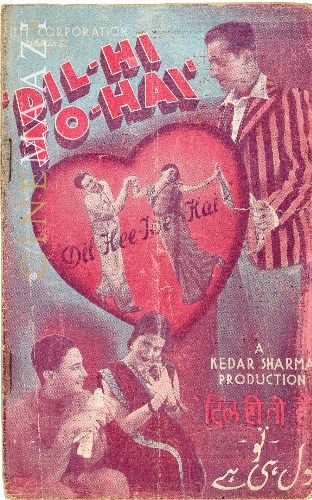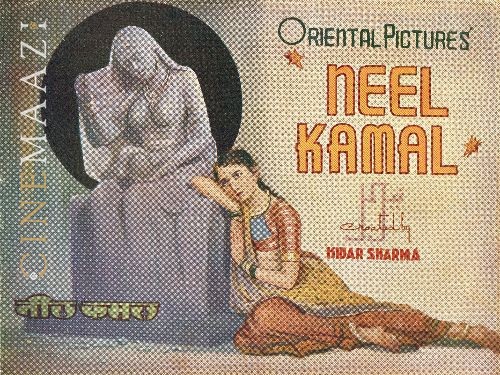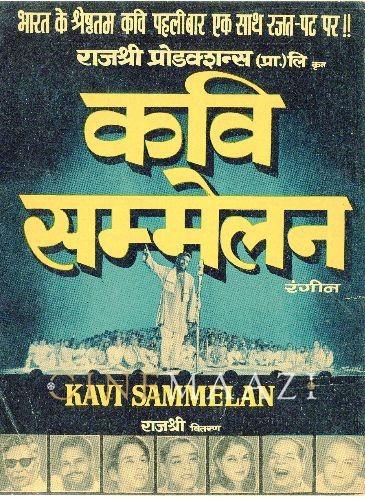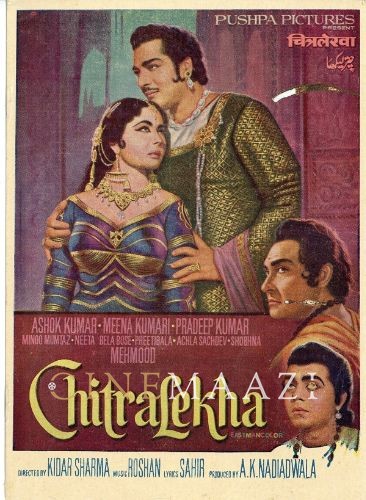This section is for paid subscribers only. Our subscription is only $3700/- for one full year.
You get unlimited access to all paid section and features on the website with this subscription.
Subscribe to read full article
This section is for paid subscribers only. Our subscription is only $37/- for one full year.
You get unlimited access to all paid section and features on the website with this subscription.
Not ready for a full subscription?
You can access this article for $2, and have it saved to your account for one year.
- Release Date1939
- FormatB/W
- LanguageHindi
- Censor RatingA
"Fathers are fools," think our educated children-such a child is Sheela.
In a village remote, far away from the university towns, lived Sheela's father. He was middle fail; educated enough to court the Tehisildar. He was respected-he was satisfied.
His children came of age. He had plans for them. The higher university education will raise the status of his children to that of an upper middle class, he thought-he believed in it too. Off they go to Calcutta, Lal & Sheela.
Lal & Sheela live together. On the second floor lives Kishori. He has a telephone; Sheela uses it; they get to know each other better Kishori was sent to England to be a Barrister. He came back a dentist. The old man kicked the bucket before he could see his son dressed in black.
On Saturday's all roads lead to "The Light House" Lal & Sheela also follow the crowd. After the show, Lal has to keep an appointment. Sheela is the problem-she must be escorted home. 'Don't you worry brother, I wasn't born yesterday'. So she says and off she goes on her bicycle.
The night, the moon, the stars-they create a romance. Sheela is romantic. She is whistling, humming, cycling, looking at the nocturnal lumanaries all at the same time. She is in a trance. B...A. N...G-she wakes from her stupor. She is in the arms of a shaby handsome tramp. Who is this man? Sheela is furious and bang goes the slap on Bansi's face. He helplessly looks into her eyes-the eyes meet. He shows the bleeding arm-she is embarrassed. The bag, the hankie, the water, the bandage-Bansi feels relieved. Soft hands certainly can do miracles.
Lal & Bansi were class fellows, they were friends. Lal asks him to share his flat. Bansi agree. Lal, Bansi, Kishore, Sheela-they sing they dance, they joke, they live-all together.
Lal has passed his M.A. Vacation must be spent at home. They leave for the village. With them goes Bansi.
Kishori feels lonely. Bad teeth are few, dentist are many; times are hard-He has no practice. He thinks of marriage. Women of his standard and ideas are few. There can be no disparity in marriage like the unsuitability of mind and purpose, he know. He is gloomy 'Seek and ye shall find' says the Bible. He seeks and finds one-Dulari-the ultra modern-the painted doll. Is he happy...?
In Tatoli as in all other village simplicity and modesty is a rule and not an exception. Here Sheela, with her cosmatics and Beach Pajamas-Her lover Bansi, and her love songs, is a sight. House and House hold-she is not interested. Photography of course, is a civilized hobby.
Sheela did not start to disappoint her father till she was 17. She is 17 to-day. The Pandit is come-her marriage is in the air. 'It is my marriage and I am out of the picture. Well, if that is that I am not going to marry at all'. Father is hurt. Pandit is amused. Sheela is angry, tempers are lost, hot words are exchanged, Pandit's eyes are wondering, father to daughter-daughter to father. Father shouts 'Fool'- daughter demands 'Who'- Are fathers really fools?
Lal has to find a job- Sheela has to get her degree. They are back to Calcutta. Lal for the first time has to face the grim reality of life-UNEMPLOYMENT. From door to door he goes in search of a job-at last finds one Behari a millionaire wanted a teacher for his accentric little daughter.
Lal gets a job-the father loses everything, for Sheela could not be married to the village Chowdhury. The father who sacrificed for his children the saving of his life-time, the property of his ancestors, is helpless. For shelter he goes to his son, with him goes Saraswati-the widow daughter. Will he get a welcome like the one he gave? He is afraid. What an irony of fate!
Expensive Calcutta, incorrigibly extravagant Sheela a big family, meagre salary-it is hard to pull through. Lal is always morose. The youth in him rebels. The spirit revolts.
The children of the heartless rich have a heart. Baby has one-she loves her teacher She smells what is amiss. Bihari is away She opens the safe. From the safe to Lal's over-coat go the ornaments, jewels and the precious stones, Innocence is happily proud. The good deed is done.
Sheela-the selfish Sheela has promised 50 rupees to the club. "There is a gold necklace and Saraswati has no use for it". How dear is the sacred memory of the dead husband, it is a pity she does not feel it. Vanity prevails over morals-she steals the necklace. Footsteps are heard. She hurriedly deposits the booty in the over-coat. The police is come; the house is searched the guilt is found-Lal is taken to Jail.
Every thing in life has a price. Even justice has a price, Bansi makes the estimate-two thousand-the case has to be fought, the lawyer has to be engaged-but two thousand-alas miracles don't happen these days. Bansi is a dreamer-father is a practical man-he finds employment as an ordinary servant.
Sheela unconcerned, unchanged, inhuman and selfish must be punctual for the dance rehearsals, no matter what happen to the family She is dancing on the stage. Kuldip the rich secretary of the club is all admirations for the girl. Now and again, he heaves a sigh. 'I wonder what could be the price for this pretty figure. To Kuldip love is hypocracy marriage a social blunder, sentimentality a folly-Barter sounds sensible-it is a fair exchange-money is the thing. The dance finishes with a flourish. Sheela is stried-she is thirsty-she needs a drink. The man servant approaches her He is stuck she is stuck the beverage crops the rich costume is tained; Kuldip is furious, "Dirty swine" low down begger" - a slap on the face-a kick in the ribs-the man is thrown out. "Stop" shouts Sheela. She is dumb again. Once more the vanity rules.
Brother is in jail. Father is slapped and kicked-what is their fault? They tried to contribute their ahare towards life. They tried to maintain the sanctity and decency of human relationship. They played their part in life--they are punished. Sheela played her part in life too-is she punished? Sheela's mental equilibrium is lost. The calamity of the family haunts her like a night-mare. She has no peace. Punishment-mental or physical-which is greater?
In a big hall, Kuldip in his dress suit is carelessly striking few notes on the piano. He gives a vacant look over his shoulders. Through the window, he sees a lone-some figure approaching the hall. It is Sheela. Kuldip knows why Sheela has come. She needs money. He can give it to her. But after all "Fair exchange is no robbery". He bargains with Sheela. Beggers can't be choosers-she is dumb. She quietly signs the terms. Two thousand is the price for the pretty face, beautiful figure, exquisite body The deal is done. She takes the cheque. She will be back in an hour to deliver the goods.
Kuldip is anxiously waiting. Sheela has played a dirty trick-He is thinking. But no! Sheela believes in the integrity of business. She is back. Kuldip approaches her with open arms. She falls on the carpet with a Thump. She has thrust a knife in her bosom. "You fool, what have done" exclaims Kuldip. That was the bargain you wanted the dody I have reached it here. It is all yours".
[from the official press booklet]

Cast
Crew
-
BannerFilm Corporation of India, Calcutta
-
Director
-
Music Director
-
Cinematography
-
Editing
-
Sound Recording/ Audiography
-
Choreography
-
Laboratory/ Processed at
-
Writer
-
Art Direction











.jpg)



